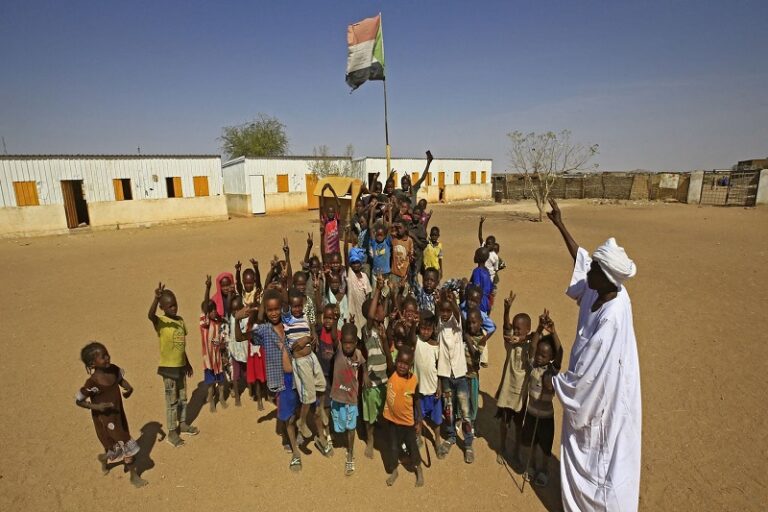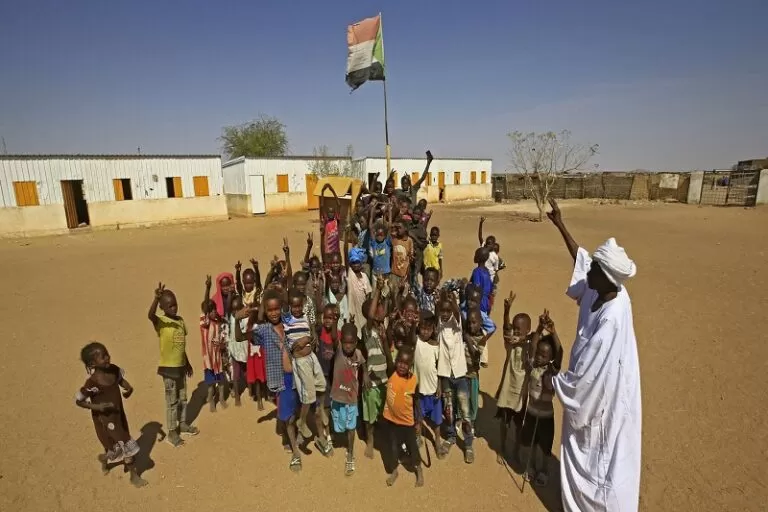

due to millions of youngsters missing school, sudan is facing a generational disaster
According to the warnings of many humanitarian organizations, nearly every child of school age in Sudan is either not receiving an education at all or is facing significant disruptions to their education. This week, schools in some states reopened after being closed longer than expected because of disastrous floods. However, millions of children are still unable to go to school, putting some states in the middle of a “generational catastrophe.”
Poverty, a shortage of competent teachers, and strikes by teaching staff are among the many causes that have led to the issue. Low vaccination rates and the legacy of the COVID-19 pandemic are also among the factors that have contributed. According to the education ministry, more than 600 schools were destroyed during the months of August and September as a result of flooding and attacks by militias. In many cases, schools are little more than empty shells of buildings because they lack amenities such as furniture, running water, and toilets.
According to a statement issued jointly by UNICEF and Save the Children, there are around 7 million children in Sudan who are of school-age but do not attend any form of education. This accounts for almost one-third of all children in Sudan. The state of central Darfur is the one most negatively impacted, with 63% of children not attending school there; the ratio is 58% in the state of West Darfur, and it is 56% in the state of eastern Kassala.
According to the statement, the education of an additional 12 million children “will be heavily interrupted by a lack of sufficient teachers, infrastructure, and an enabling learning environment to make them reach their full potential.” This will prevent these children from realizing their full potential. According to UNICEF, seventy percent of 10-year-olds attending public schools cannot read even a simple sentence. The majority of students who are now enrolled in classes have fallen behind in their education.
Owen Watkins, the chief of communications for UNICEF in Sudan, described the situation as “a generational calamity.” Children are invariably a nation’s best hope for the future. It is in everyone’s best interest to put money into them, as they will make a significant contribution to the GDP of the nation in the years to come. He continued by saying, “Children learning in school is not simply about math, reading, and writing.” In a safe environment, they also acquire the ability to interact with others.
A teacher and a former head of a school in Um-Oshar, which is located in the southern outskirts of Khartoum, by the name of Ahmed el-Safi, stated that on his street of 20 houses, three to four children in each household were not attending school. The fact that they are hungry makes it impossible for them to attend school. “In order for many of them to get enough food to eat, they have no choice except to go to the market and try to sell plastic bags or anything else.”
The cricket authority in Zimbabwe will organize matches between top international teams in a major cricket event expected to succeed…
In 2025 the South African Social Security Agency (SASSA) announced its designated dates for social grant payments that benefits millions…
Africa is taking big steps by entering the global green technology manufacturing market to stop being just a supplier of…
Two mobile telecom leaders, MTN Group and Airtel Africa, joined forces to create a new digital infrastructure system throughout African…
South African President Cyril Ramaphosa defended his nation against claims of white discrimination made by tech magnate Elon Musk. After…
Hilton launched Signia by Hilton for its first appearance in Egypt and Africa through its hotel expansions. These hotels at…
This website uses cookies.